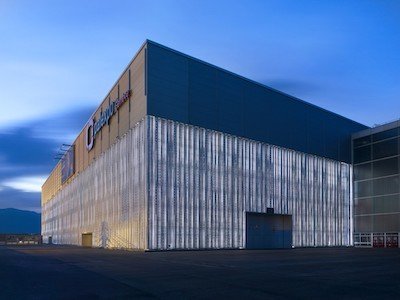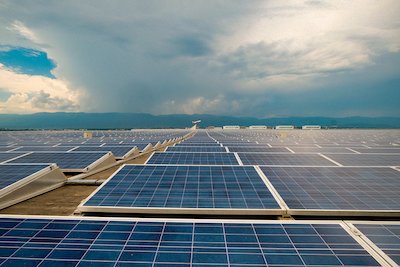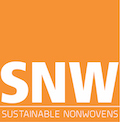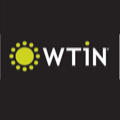PALEXPO & Sustainable Development

Sustainable development means considering the needs of all the company’s partners, including future generations. It is the key to a balanced and responsible approach to the company’s role in society. That’s why sustainable development has been one of Palexpo’s core concerns since 1993, and why sustainable management has always been an integral part of our culture.
The definition of sustainable development – meeting the needs of the present without compromising the ability of future generations to meet their own needs (Brundtland Report 1987) – is complemented by an operational definition that brings into play the three dimensions of ecology, economy and society.
A RECOGNISED FRAMEWORK
Implementing sustainable development in corporate management must be based on a precise framework that includes quantified indicators and a governance model. Palexpo has chosen the approach proposed by the Event Organiser Sector Supplement (EOSS) developed specifically for its sector of activity by the Global Reporting Initiative (GRI) in conjunction with the Union of International Fairs (UFI).
Palexpo participates in the UFI Working Committee on Sustainable Development in the Exhibition Industry.
In December 2018, Palexpo obtained ISO 20121 certification 20121: 2012 for its infrastructure. This events industry standard demonstrates the company’s commitment to a responsible management system for its activities.
After its infrastructures, the exhibitions organised by Palexpo were ISO 20121:2012 certified in 2019. Organisation for all of these events (including the art fairs, the Automnales, the Salon de la Montagne, the Bébé et Moi and Expo Juniors, the Arvinis book fair, the International Exhibition of Inventions, the Supercross, the Blockchain Congress, trade fairs such as EPHJ and Index and events such as the Royaume du Web, the Royaume des Pros and Swiss Expo) was recognised as sustainable and environmentally friendly.
These certifications are the fruit of years of commitment to sustainable development and highlight Palexpo’s efforts to limit the environmental impact of our activities while aligning ourselves with the UN 2030 Development Agenda.
GOVERNANCE
Palexpo has set up a management system that applies strict corporate governance principles:
- Elaboration of a charter presenting the organisation’s primary mission and fundamental values.
- Development of general principles and a code of conduct for environmentally-friendly behaviour.
- Conducting a sustainable management audit to assess corporate governance in the three dimensions of sustainable development.
- Creation of an ISO 20121 Committee bringing together the key people at Palexpo in terms of sustainability. This body proposes actions for sustainable development and consolidates our ambitious objectives for continuous improvement. It also guarantees the proper conduct of the ISO management system as regards sustainability.
- Creation of a team of ambassadors from each department responsible for relaying a culture of sustainable development within Palexpo. Their role will be to motivate and promote the actions of their direct colleagues on a daily basis so that sustainability spreads within the company healthily, without assigning blame. This will involve recognising good actions, introducing new behaviours, proposing alternatives to inappropriate actions, exchanging ideas, feeding back information and various needs to the committee, and participating in continuous improvement actions.
- Definition of sustainable development indicators and creation of monitoring dashboards.
- Commitment to meet all legal requirements as well as those of ISO 20121.
The company also values sustainable development when dealing with third parties. Its transactions must comply with clear and transparent rules:
- Fair competition and payment control: fairness and objectivity in business transactions. Multiple levels of audit in bidding.
- Transaction accounting and auditing: IPSAS accounting (Institute for International Public Sector Accounting Standards).
- Purchasing policy: systematic evaluation of the most important risks for suppliers (human capacity, meeting deadlines, financial risk, product quality and achievements).
- Two principles guide purchasing: buying sustainably and/or recyclables and buying as locally as possible.

ECOLOGY
Palexpo SA is constantly striving to minimise its use of natural resources. When our building was first constructed in 1981, the roof was designed to be able to hold solar panels. From the outset, the building was connected to the remote heating network as well.
Two energy audits in 2005 and 2008 have helped increase Palexpo’s energy efficiency, in particular by completely reviewing the halls’ ventilation and lighting systems. A weather station installed in Hall 6 adjusts the heating and ventilation in real time. The collection of electricity consumption data is digitalised and provides detailed indicators in real time.
Palexpo only uses Swiss electrical energy produced using solar or hydropower. With 30,000 m² of photovoltaic panels on its roof, Palexpo is the second-largest solar power plant in the country. This installation now covers the equivalent of the yearly energy use of 1,350 households.
When it comes to waste, Palexpo SA applies the «3 Rs»: Reduce – Reuse – Recycle. Half of our waste is sorted at source, while the rest is treated by a specialised service provider. For some exhibitions, nearly 80% of total waste is recycled. Optimising container filling has made it possible to reduce both the number of kilometres travelled by our vehicles as well as our CO² emissions.
The Supercross has used the same earth since 1987, while the International Horse Show reuses its sand every year. All the earth and sand are stored near Palexpo, which eliminates the need to transport them over long truck journeys.
Electric cars are welcome at Palexpo. They can even recharge their batteries in our car park.
ECONOMY
A company’s purpose is to do business in order to thrive and be sustainable. This can be achieved through rigorous and balanced resource management. Thanks to its sustainable development policy, Palexpo SA has been able to increase its sales per m2 rented and its overall turnover, while reducing its energy expenses and its ecological footprint.
As a result, Palexpo is giving itself the means to invest in modernising the way we work in order to remain competitive. The virtuous circle that is being set up allows us to continue our operations while minimising our environmental impact per m2 rented. An increasing number of event organisers are choosing exhibition and congress centres that are certified in sustainable management.
SOCIETY
Convention and exhibition centres are tools for their communities. The regions that host them benefit from significant economic spinoffs. Since 2005, Palexpo has been evaluating its economic spin-offs using a model created by two professors from the University of Geneva: each year, Palexpo’s activities contribute close to CHF 600 million in economic effects for the surrounding community.
The social dimension of sustainable management also includes employees’ social rights and working conditions. It recommends fair working conditions and a non-discriminatory policy, encouraging the employment of local labour and a safe working environment.
Palexpo’s 200 employees are divided among about fifty professions. Gender equality has remained a steady part of our policy, with women filling 38% of the company’s positions and 41% of management roles.
The safety of people, materials and infrastructures is ensured by a comprehensive prevention and communication system, framed by ambitious policy and objectives. A «health and safety» manager maximises the health and safety conditions of Palexpo’s employees, customers, suppliers and visitors.
PROTECTING THE PLANET WITH THE WWF
To advance with the sustainability efforts deployed by Palexpo and by INDEX™, PALEXPO will be donating one Swiss franc per exhibitor’s satisfaction survey completed for a project to protect our planet. As a first test of this approach, WWF Switzerland will receive these funds for a project working on global Climate Protection after the closing of the before-mentioned survey. Please find more information about the WWF projects here.



